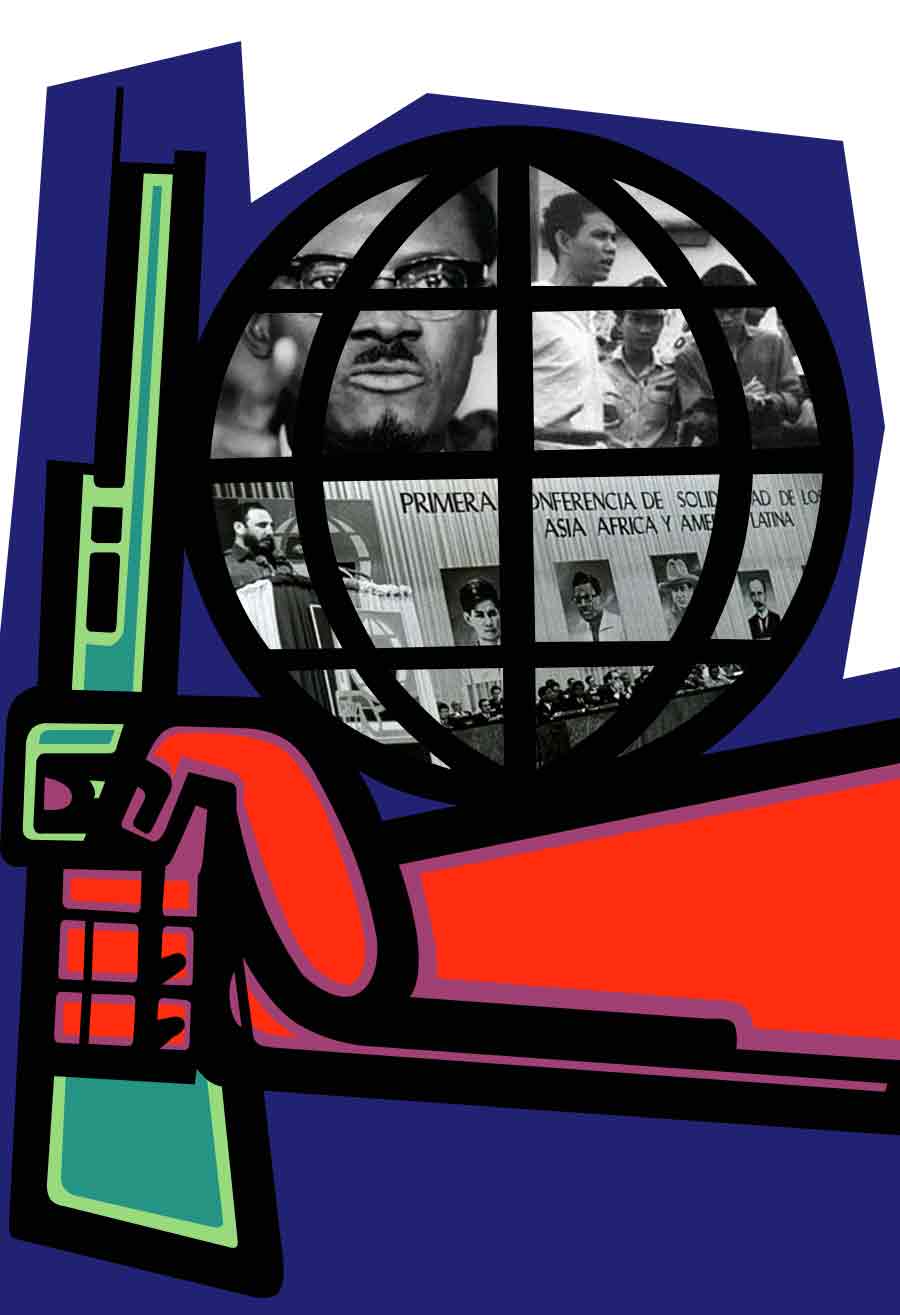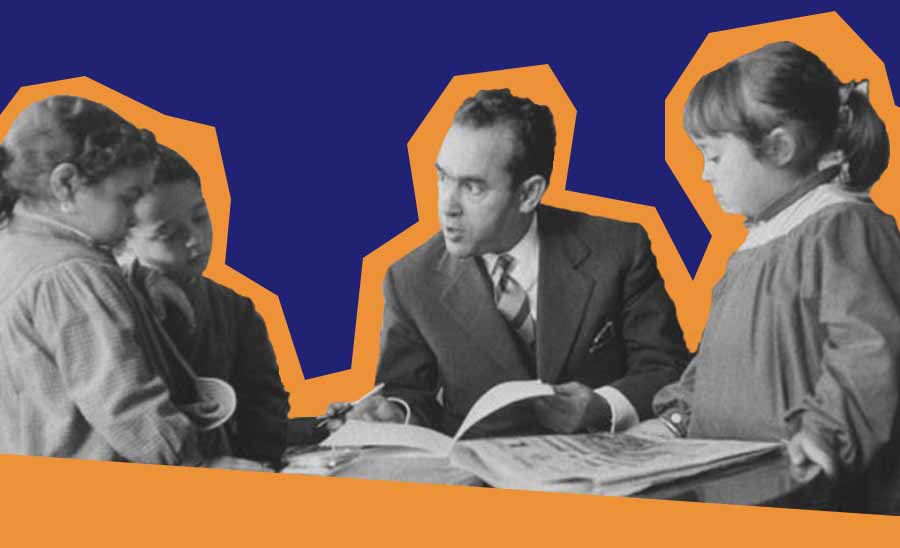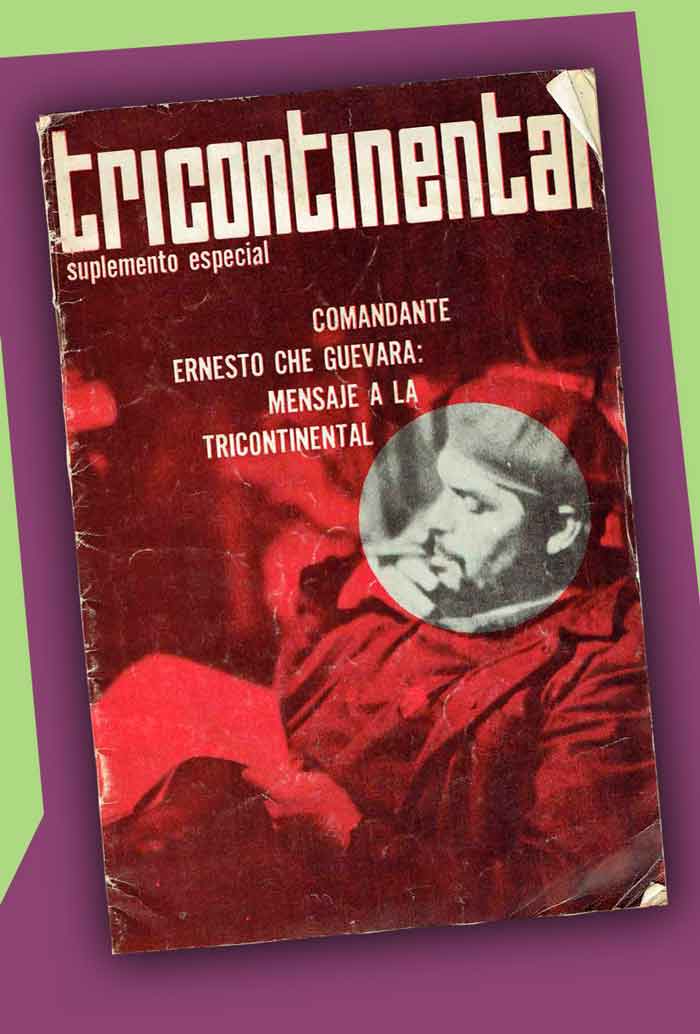ESP / ENG

Havana, January 1966. The Cuban capital hosts 500 delegates from 82 countries for the “Conference of solidarity with the peoples of Asia, Africa and Latin America,” commonly known as the Tricontinental Conference.
The 12-day event gathered 28 delegations from Africa, 27 from Asia and 27 from Latin America. All the main national liberation movements from the three continents were present, from the African National Congress (ANC, South Africa) to the Palestinian Liberation Organization (PLO), from the Popular Movement for the Liberation of Angola (MPLA) to the Venezuelan National Liberation Front. Likewise present were government delegations from countries such as China and the Soviet Union, in spite of the Sino-Soviet tensions at the time.
The Tricontinental Conference was not the first initiative of this nature. In 1955, a host of world leaders gathered for the Bandung Conference, which gave rise to the Non-Aligned Movement. Nevertheless, this was an openly revolutionary, anti-colonial and anti-imperialist conference like never seen before.
“The peoples of the three continents, determined to clear all obstacles from their path and to fight indomitably for a new Asia, a new Africa and a new Latin America, finally free from imperialism, colonialism and neocolonialism, will come together in a tight alliance until securing the total and definitive victory,” read the final resolution adopted by the conference. [1]

Joining currents
In the mid 1960s the anti-colonial and anti-imperialist struggle had battlefields everywhere. The background was the Cold War, with two opposing blocs which took opposite sides, actively or passively, in each and every conflict.
In Africa several countries experienced their first post-independence steps, while liberation movements carried on with anti-colonial guerrilla warfare in places like Guinea-Bissau or Rhodesia/Zimbabwe. China plowed on against internal and external enemies. In Latin America, the Cuban Revolution paved the way for a series of new struggles, while Washington scrambled to neutralize an unacceptable example and the risk of it spreading in its “backyard.”
But there were setbacks as well. The occupation of Palestine continued to progress in the Middle East. The counteroffensive from the US and its allies did not take long either. A number of progressive and nationalist governments saw their hopes crushed by CIA-orchestrated coups. Examples included Iran (1953), Guatemala (1954), the Congo (1960) and Indonesia (1965).
However, the epicenter of anti-imperialist resistance at the time was the Vietnam War. The massive and direct US involvement generated widespread outrage all over the world.
It was in this context that several leaders put forward the need to see the different flash points as fronts in a common struggle and thus increase solidarity. And one figure played a key role: Mehdi Ben Barka.
“There is no greater force than that of the people when they decide to be free and independent and to achieve peace. Peoples of Africa, Asia and Latin America: move forward with your struggle until the decisive battle against imperialism, colonialism and neocolonialism!” the Moroccan revolutionary exclaimed. [2]
A leader of the Moroccan National Union of Popular Forces, Ben Barka was tireless in bringing together progressive/revolutionary governments and liberation movements, stressing that the Tricontinental Conference would join “the two great contemporary currents of world revolution: the one borne out of the October Revolution and the national liberation one.” [2]
But Ben Barka did not get to take his post as conference secretary. As an ever more dangerous threat for his country’s monarchy and imperialist powers, the Moroccan intellectual was disappeared in Paris on October 29, 1965, in a case that remains open in the French justice system.

Many Vietnams
The conference had its fair share of high profile speakers. One of them was Amílcar Cabral, renowned leader of the African Party for the Independence of Guinea and Cape Verde (PAIGC) and the liberation struggle in Guinea-Bissau. In his speech, Cabral took stock of the independence struggles while connecting them to theoretical aspects of colonized societies. He argued that rigorous analysis and a clear ideological outlook were key for liberation movements.
“It is usually said that national liberation rests on the peoples’ right to freely choose their destiny, and the goal is national independence. […] For us, the core of national liberation is built from the unassailable right of every people to have their own history,” he affirmed. [3]
The Pan-African intellectual closed by paying tribute to “the heroic people of Vietnam,” adding that the best exercise of solidarity would be for each delegation to return to its country and deepen the struggle.
The character that embodies the spirit of the Tricontinental Conference like very few others is Ernesto “Che” Guevara. Che was also key in organizing the conference, while he was becoming the most recognizable face of the international solidarity put in practice by the Cuban Revolution from its very beginning.
However, the legendary guerrilla fighter did not make it to the event, as the preparations for the Bolivia campaign were at full throttle. Even so, Che is behind the slogan that’s most associated with the Tricontinental Conference and which captures its essence (italics added).
“We could be staring at a bright and near future if two, three, many Vietnams arose around the world, with their share of death and immense tragedy, with their daily heroics, with their repeated blows against imperialism […]!” [4]
Che’s famous quote, published in the Tricontinental Magazine in 1967, was not an eulogy to war, much less an attempt to trivialize Vietnamese resistance. It was rather a call to generate more and more flashpoints to divide and wear down imperialist forces.

International solidarity, then and now
“This conference will undoubtedly have its place in the history of popular liberation struggles.” These were Fidel Castro’s words in the closing ceremony. “We have seen how the revolutionary movement is going from strength to strength on a global scale […]. In spite of imperialist power, there is no doubt that the united strength of revolutionary peoples will be much more powerful.” [5]
The conference produced the Organization of Solidarity with the Peoples of Asia, Africa and Latin America (OSPAAAL) and, in line with Castro’s prescient words, a renewed momentum against (neo)colonial regimes. The following years saw the independence of the last African colonies, the overthrow of dictatorships in Latin America and, especially, the triumph of the Viet Cong in the Vietnam War.
Struggle and solidarity also emerged in the Global North. The US, for example, saw the birth of the Black Panther Party and an incredibly strong anti-war movement which also played a key role in ending the conflict.
The choice of Cuba to host the conference, and later to house the OSPAAAL headquarters, was not unanimous. But no one has put internationalism in practice in such an exemplary fashion. To mention but one example, Cuba rushed to Angola when movements backed by the US and South Africa threatened the country’s independence. The resistance and subsequent counteroffensive by Cuban and Angolan troops dealt the decisive blow against the South African apartheid regime.
Washington and its allies also reacted aggressively, redoubling efforts to retain geo-strategic control. The CIA organized coups in countries like Chile (1973), Grenada (1983) or Burkina Faso (1987) to install bloody dictatorships and arrest the West’s loss of hegemony.
Nevertheless, the Tricontinental Conference remains as a landmark, an earthquake that continues to tremble, a demonstration that there is but one common fight for the peoples’ liberation around the world. The struggle continues!

REFERENCES
[1] Official Resolution from the First Conference of Solidarity of the Peoples of Asia, Africa and Latin America, 1966.
[2] Bulletin du Comité International Préparatoire de la Première Conférence de Solidarité des Peuples de l’Afrique, l’Asie et l’Amérique Latine, n° 1, October 15, 1965.
[3] Amílcar Cabral, “Fundamentos e objectivos da libertação nacional em relação com a estrutura social”, speech at the Tricontinental Conference, January 1966.
[4] Che Guevara, “Mensaje a los pueblos del mundo a través de la Tricontinental”, Tricontinental Magazine, April 16, 1967.
[5] Fidel Castro, Speech at the Tricontinental Conference closing ceremony, January 15, 1966.
Research and text: Ricardo Vaz. Artwork: Luis Cario.